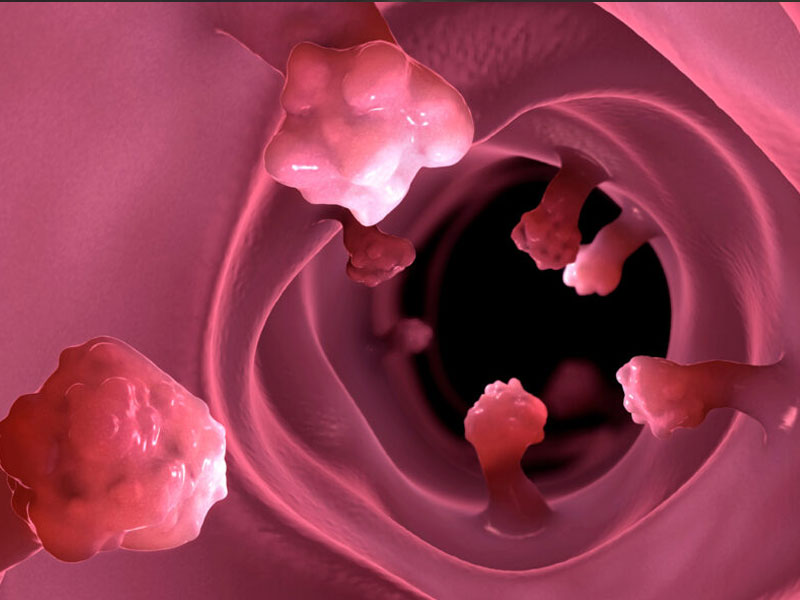Artificial Intelligence May Aid in Colorectal Cancer Detection
SOURCE: GENENGNEWS.COM
NOV 08, 2021

Using artificial intelligence (AI) to identify cancer is an emerging technology. Many research studies have leveraged the power of AI to detect cancer and have demonstrated how the integration of AI technology in cancer care could improve the accuracy and speed of diagnosis, and lead to better health outcomes. Now, researchers from Tulane, Central South University in China, the University of Oklahoma Health Sciences Center, Temple University, and Florida State University have collaborated to determine whether AI could be a tool to help pathologists detect colorectal cancer.
Their new study is published in the journal Nature Communications in a paper titled, “Accurate recognition of colorectal cancer with semi-supervised deep learning on pathological images.”
“Colorectal cancer (CRC) is the second most common cause of cancer death in Europe and America,” the researchers wrote. “Pathological diagnosis is one of the most authoritative methods for diagnosing CRC, which requires a pathologist to visually examine digital full-scale whole slide images (WSI).”
“Even though a lot of their work is repetitive, most pathologists are extremely busy because there’s a huge demand for what they do but there’s a global shortage of qualified pathologists, especially in many developing countries,” said Hong-Wen Deng, PhD, professor and director of the Tulane Center of Biomedical Informatics and Genomics at Tulane University School of Medicine. “This study is revolutionary because we successfully leveraged artificial intelligence to identify and diagnose colorectal cancer in a cost-effective way, which could ultimately reduce the workload of pathologists.”
The researchers collected over 13,000 images of colorectal cancer from 8,803 subjects and 13 independent cancer centers in China, Germany, and the United States. The researchers developed a machine-assisted pathological recognition program that allows a computer to recognize images that show colorectal cancer.
“The challenges of this study stemmed from complex large image sizes, complex shapes, textures, and histological changes in nuclear staining,” Deng said. “But ultimately the study revealed that when we used AI to diagnose colorectal cancer, the performance is shown comparable to and even better in many cases than real pathologists.”
“Our work confirmed that unlabeled data could improve the accuracy on insufficient labeled pathological images. We demonstrated that SSL [semi-supervised learning] with a small amount of labeled data of three cancers achieved comparable prediction accuracy as that of SL [supervised learning] with massive labeled data and that of experienced pathologists,” concluded the researchers.
“It’s still in the research phase and we haven’t commercialized it yet because we need to make it more user friendly and test and implement it in more clinical settings. But as we develop it further, hopefully, it can also be used for different types of cancer in the future. Using AI to diagnose cancer can expedite the whole process and will save a lot of time for both patients and clinicians,” the article’s authors wrote.
LATEST NEWS
WHAT'S TRENDING


Data Science
5 Imaginative Data Science Projects That Can Make Your Portfolio Stand Out
OCT 05, 2022

Eerily realistic: Microsoft’s new AI model makes images talk, sing
SOURCE: INTERESTINGENGINEERING.COM
APR 20, 2024
80% of AI decision makers are worried about data privacy and security
SOURCE: ARTIFICIALINTELLIGENCE-NEWS.COM
APR 17, 2024
AI Is Set To Change Fertility Treatment Forever
SOURCE: HTTPS://CODEBLUE.GALENCENTRE.ORG/
NOV 06, 2023
AI-empowered system may accelerate laparoscopic surgery training
SOURCE: HTTPS://WWW.NEWS-MEDICAL.NET/
NOV 06, 2023
Here’s Everything You Can Do With Copilot, the Generative AI Assistant on Windows 11
SOURCE: HTTPS://WWW.WIRED.COM/
NOV 05, 2023
Tongyi Qianwen, An AI Model Developed By Alibaba, Has Been Upgraded, And Industry-specific Models Have Been Released
SOURCE: HTTPS://WWW.BUSINESSOUTREACH.IN/
OCT 31, 2023




